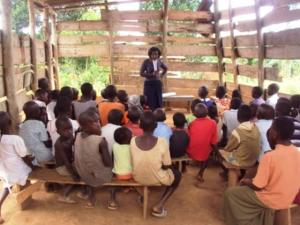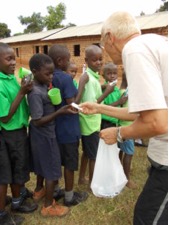The What If? Foundation allows your compassion to cross borders, so you can make a direct and immediate impact on the lives of Haitian children and families.
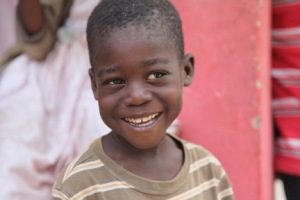 Poverty is nothing short of an epidemic in Haiti – it is the poorest country in the Western Hemisphere, and one of the poorest in the world. Two out of three Haitians live on less than US $2 per day. 100,000 children under five years of age suffer from acute malnutrition. And at least 50% of Haitians age 15 and over are illiterate.
Poverty is nothing short of an epidemic in Haiti – it is the poorest country in the Western Hemisphere, and one of the poorest in the world. Two out of three Haitians live on less than US $2 per day. 100,000 children under five years of age suffer from acute malnutrition. And at least 50% of Haitians age 15 and over are illiterate.
The situation is extreme. But it is not hopeless. Together with their Haitian partner, Na Rive, the What If? Foundation strives to assist Haitians with the resources they need to build change for themselves: food, education, and hope.
The What If? Foundation was created in 2000 by an American woman and a celebrated Haitian civil rights activist, Father Gerard Jean-Juste. Father Jeri, as he is known in the community, had a vision for creating a better future for Haiti: “First we feed the children, we keep them alive. Then we educate them.” They have been working with the Ti Plas Kazo community to fulfill Father Jeri’s vision ever since.
Thanks to the generosity of What If donors, Na Rive’s longstanding community food program addresses the persistent issue of food scarcity in Port-au-Prince. Every Monday through Friday, the local cooking team nourishes the community’s minds and bodies, providing as many as 3,000 hot, nutritious meal for children, parents, students, and teachers.
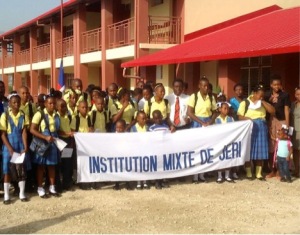 After many years of dreaming, planning, and persisting, construction on the Father Jeri School was completed in 2016. The school is designed to foster the next generation of Haitian leaders: children who are empowered, thoughtful, resilient, resourceful, proud of their heritage, and ready to work together for positive change. Every school day, children aged 3-19, who might otherwise have no path to an education, are engaged in a rigorous academic curriculum with teachings of respect, empathy, and civic duty. The school also houses a popular after-school program and six-week summer camp, providing children with a safe, supportive learning environment all day and all year long.
After many years of dreaming, planning, and persisting, construction on the Father Jeri School was completed in 2016. The school is designed to foster the next generation of Haitian leaders: children who are empowered, thoughtful, resilient, resourceful, proud of their heritage, and ready to work together for positive change. Every school day, children aged 3-19, who might otherwise have no path to an education, are engaged in a rigorous academic curriculum with teachings of respect, empathy, and civic duty. The school also houses a popular after-school program and six-week summer camp, providing children with a safe, supportive learning environment all day and all year long.
The programs What If supports have always been Haitian-led and Haitian-run: this is why they are so effective. They have witnessed the incredible resourcefulness and
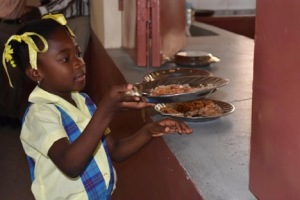 enduring spirit of the Ti Plas Kazo community as they create their own change, becoming a source of hope and pride for the entire country. They see a future where all Haitians can grow out of the cycle of poverty and hold the tools to create their own path. And they believe people from all backgrounds and places can come together in solidarity with Haiti, to create change one small step at a time.
enduring spirit of the Ti Plas Kazo community as they create their own change, becoming a source of hope and pride for the entire country. They see a future where all Haitians can grow out of the cycle of poverty and hold the tools to create their own path. And they believe people from all backgrounds and places can come together in solidarity with Haiti, to create change one small step at a time.
To learn more about the What If? Foundation and discover opportunities to give back and volunteer to help children in Haiti, visit their website or explore UniversalGiving.
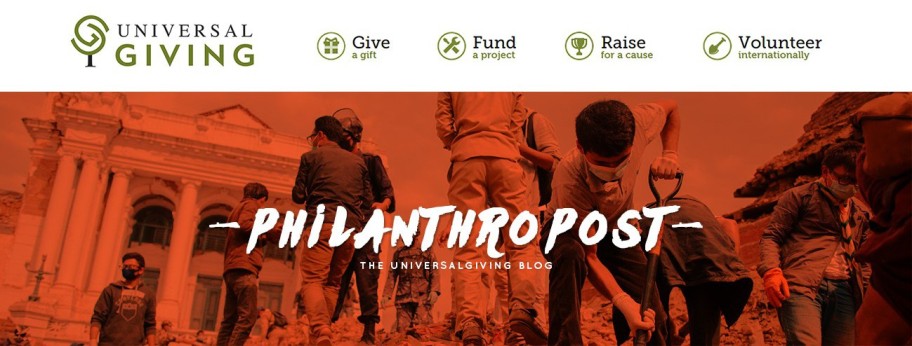
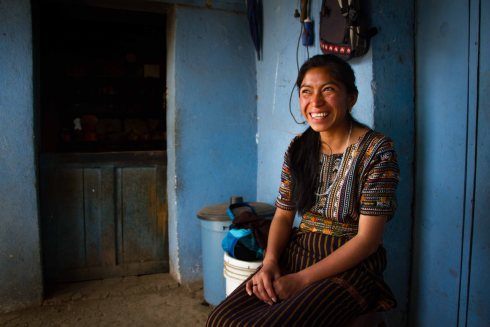 (Photo by Livvy Runyon)
(Photo by Livvy Runyon)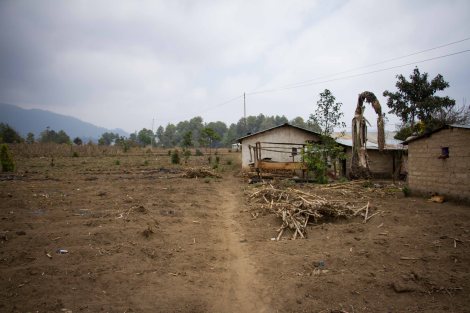
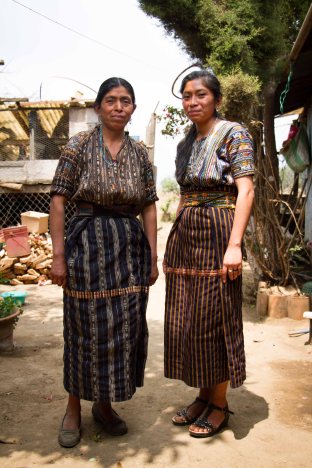 Marisela has found support from her family and now, from many others. She was recently chosen as one of the 2017 recipients of the Rosa Scholarship, an award specifically to cover the school costs for high-achieving, young indigenous women who are pursuing higher education. Now in her last year of university, Marisela describes this scholarship as a great fortune, “because now I am fulfilling my dreams.”
Marisela has found support from her family and now, from many others. She was recently chosen as one of the 2017 recipients of the Rosa Scholarship, an award specifically to cover the school costs for high-achieving, young indigenous women who are pursuing higher education. Now in her last year of university, Marisela describes this scholarship as a great fortune, “because now I am fulfilling my dreams.”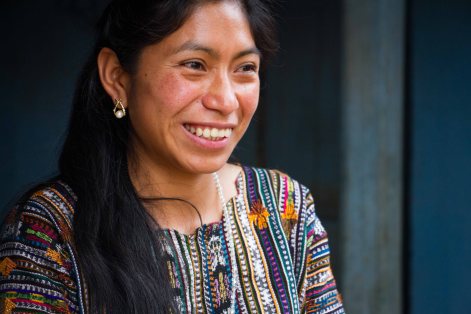
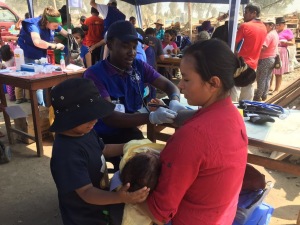
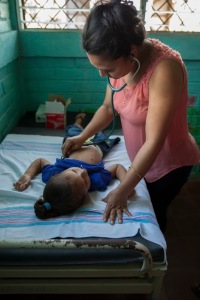
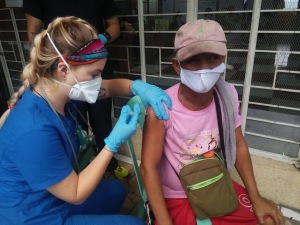
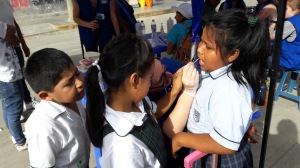
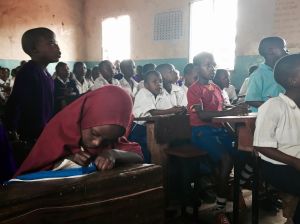
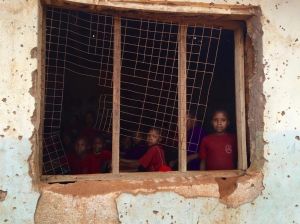

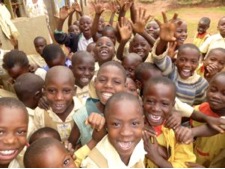
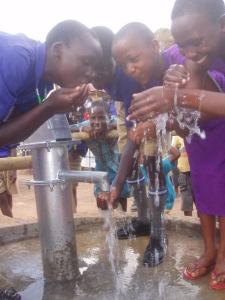 the importance and main elements of hygiene-promotion and the complexities of delivering safe water and sanitation in an emergency.
the importance and main elements of hygiene-promotion and the complexities of delivering safe water and sanitation in an emergency.